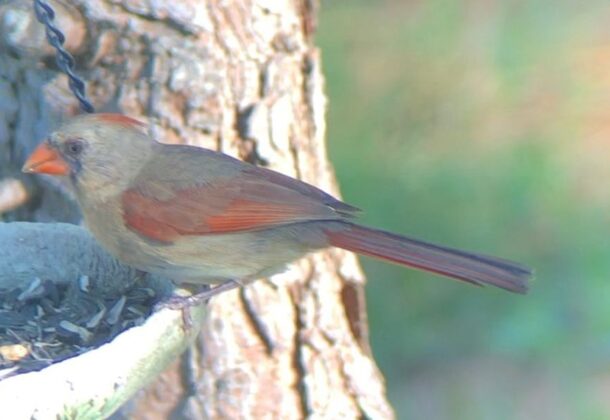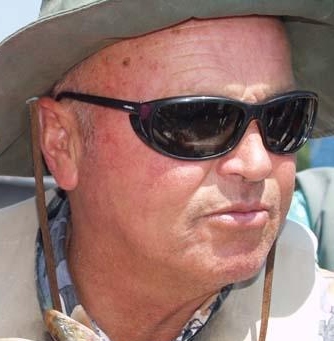Ways to Help the Songbirds

Message from the Cap’n is a compilation of fishing advice, waterman and weather insights, Chesapeake lore, and ordinary malarkey from the folks who keep their feet wet in the Potomac and St. Mary’s rivers.
Bird watching has become a national past time but there are dangers along the way. Recently many songbirds have been affected with a disabling disease causing crusty eyes, tremors, and paralysis in Maryland, DC, and Virginia along the East Coast.
Federal and state wildlife officials in the mid-Atlantic region are asking people to stop feeding birds and providing water in bird baths amid dozens of reports of mysterious songbird deaths, according to NPR.
First noticed in April in Washington, DC, the illness causes birds to have swollen, crusted eyes, become disorientated, and in some cases, lose partial body function. According to a report released by the US Geological Survey, scientists have ruled out West Nile virus and avian influenza virus – which is good news as those diseases are known to infect humans.
In trying to address this situation state and District agencies recommend the following standard precautions:
- Cease feeding birds until this wildlife morbidity/mortality event subsides;
- Clean feeders and bird baths with a 10% bleach solution (one part bleach mixed with nine parts water), rinse with water and allow to air dry;
- Avoid handling birds unless necessary. If you do handle them wear disposable gloves. If picking up a dead bird, place an inverted plastic bag over your hand to avoid direct contact with the bird; and
- Keep pets (including pet birds) away from sick or dead wild birds as a standard precaution.
Many researchers are looking into possible causes but they have not come up with a definitive answer.
“Because we don’t know what it is, we have to be that much more vigilant. We still don’t know if it’s caused by a virus or a bacteria” or a toxic chemical in pesticides, said Jordan Rutter, director of public relations at the American Bird Conservancy, a nonprofit group. However, removing bird feeders doesn’t have to mean ignoring the needs of birds.
Mr. Rutter suggested that people with yards could incorporate native plants that provide food, such as berries and nectar, while also attracting insects birds eat.
Caution dictates that we at least keep the bird feeders and birdbaths clean and disinfected.
Enjoy the birds : Let’s keep a good environment for them.
Till next Time
Cap’n Jack
To learn about tours and trips into the Chesapeake, keep in touch with Fins + Claws on Facebook. Catch up on Messages from the Cap’n Member Page. Please visit Cap’n Jack’s lore and share with your social media sites. Or reach him here: [email protected] or 240-434-1385.
























